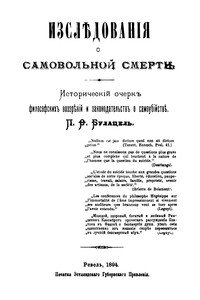Деловые приемы и встречи на английском: визиты, сотрудничество и профессиональные контакты [заметки]
1
Ho call in on us.
1 U give you a ring / buzz.
2
must be off.
Send / give my regards to Jane, it was nice seeing you.
3
a) Good afternoon, my name is Gloria Jessel. I’ve got a reservation.
b) Could you fill in the registration form, please?
c) Please vacate your room before 1 lam.
d) Could I have a wake-up call at 7am, please?
e) Here is your key-card.
f) Where is the lift, please?
g) I’m afraid the television isn’t working.
h) Room 212 on the second floor.
i) Have you got any luggage?
j) I would like to check out, please.
k) I’ll send someone up right away.
4
I’m afraid there are no clean towels.
m) Breakfast is served between 7.30 and 9.30 am.
n) Did you use the telephone or the mini-bar?
o) How would you like to pay?
p) I’ll send you the chambermaid.
q) Could I have a taxi for the airport at 8.30 tomorrow morning, please?
r) Could I put my valuables in your safe?
5
a) The receptionist isn’t very busy.
b) Everyone who arrives has an appointment.
c) Mr Chester has an appointment at 11.30.
d) The receptionist has a letter for Mr du Perron.
e) Mr du Perron will come and get Mr Chester.
0 Mr Chester sits down.
g) Mr Elliot arrives out of the blue.
h) Mr Elliot wants to see Ms Phillips about insurance.
i) The visit to Ms Phillips doesn’t cost anything.
j) Ms Phillips is available immediately.
k) Mr Chester needs to go to the loo.
6
Ms Phillip’s assistant comes to see Mr Elliot.
m) Mr Elliot has a cup of coffee.
n) Mr Elliot gives his coat to the receptionist.
o) Mr Elliot and the receptionist go outside.
7
\ зД
8
д) Понедельник мне, кажется, подходит.
9
j) Does the booking system seem to be efficient?
10
My name is Tim Broke.
11
booked a table for 2.
Whiter, could you bring the bill / check (,Amer:), please?
Here you are, sir.
How would you like to pay?
Do you take credit cards?
Please, let me...
No, this is on me / I’ll get this.
Г11 pay. We can square up later, (inf) Let’s go dutch, (inf)
It’s my round, (inf)
Whiter, I’m afraid there seems to be a mistake.
That was very good indeed.
Thank you.
I’m pleased you enjoyed it.
12
a) Manners are not very important these days to English and American people, and even less so to Asian nationals.
b) If someone says “sorry” after they bump into you in the corridor, it is normal to reply “sorry”.
c) If you tread on someone’s toe by mistake, it is normal to say “excuse me”.
d) If someone asks you if you have everything you need, and you answer “yes”, it’s rather impolite.
e) When you see someone in December / January, it is usual to say “Happy Christmas and Merry New Year”.
f) When you sneeze, and someone says “Bless you”, you should reply “thank you”.
g) If you are with a colleague and rather short of time, it is impolite to keep looking at your watch unless you have explained why beforehand. [
h) When you are invited to dinner at someone’s home in England, it is normal to take a bunch of flowers.
i) In the USA, you should eat with two utensils (knife and fork) at the same time.
j) In European countries and the USA, it is fine to have your elbows on the table during a meal.
k) In England, you should keep your forearms on the table.
13
“ Pass the water, would you?” is as polite as “Could you pass the water please?”.
m) If you are in a restaurant and you don’t know which knife or fork to use — start from the outside and work inwards.
n) In England and the USA, you put your bread on the table.
o) In the USA you should eat with the “tines” of your fork down. J
p) In the USA, it is quite acceptable to apply lipstick (but never powder) at the table after a meal.
14
I’d better be going now.
15
must be off.
Thanks for everything.
Thanks a lot.
It’s been nice seeing you.
We’ll miss you.
Bye and thanks for a nice time.
We must do this again some time. Have a good weekend.
Send my regards to all the family. Good luck / Best of luck at your interview.
Hope to see you again soon.
16
You are in a hotel with a colleague. You greet him in the morning. You would
say “Good morning........”
a) Did you have a good sleep?
b) Did you sleep well?
2. You are with a business contact, it’s time for you to take your leave.
a) I gotta go now! b) I’m afraid I’ve got to go now.
3. You want to leave discreetly, you whisper to your friend.
a) I’m going to slip away. b) I’m off, don’t tell anyone.
4. You decided to «уйти не попрощавшись», you would:
a) Take French leave. b) Take English leave.
5. You want to say “goodbye” to someone you have just met.
a) Goodbye, it was nice seeing you.
b) Goodbye, it was nice meeting you.
6. You are off to bed and want to bow yourself out.
a) Goodnight, then. b) Goodbye, then.
7. Your colleague is going away on business next week. You say:
a) Have a good trip. b) Have a good journey.
8. You are leaving a business contact, and want to say “hello” to her colleague. You say:
a) Say hello to Sonia for me. b) Give my regards to Sonia.
9. You are leaving a colleague in the middle of the afternoon. You say:
a) Good afternoon. b) I’ll be seeing you.
10. If someone says “clear off” or “get lost” to you, they mean:
a) Go away. b) Could you be so kind as to leave.
17
During a meeting with close colleagues, you want to suggest a break:
a) Shall we pause? b) Shall we take a breather?
12. A formal discussion is going on rather a long time — you want to finish.
a) I think we should draw this to a close.
b) Wfe should stop now.
18
That must be an acronym!
m) Here’s a pen and paper.
n) I understand you.
o) He doesn’t really mean he wants the report tomorrow?!
p) I don’t know the name for that.
q) That’s nonsense!
г) I didn’t really hear what you said.
s) That’s a new word!
t) I’m not sure I heard right.
u) I think that’s a very good idea!
v) Untranslatable and international!
w) My throat is croaky.
x) Repeat, please!
y) Help! Where’s my teacher?
z) Can you say all that again so I can check? (and double check!)
19
a) I didn’t hear you.
b) Explanation needed!
c) Oops! I’ve said the wrong thing!
d) That’s OK.
e) I neither heard nor understood!
f) I agree.
g) I didn’t understand.
h) What’s the word for “забастовка”?
i) I need visuals!
j) That’s a funny lever! (usually followed by “don’t touch!” and even “too late!”)
k) You’re exaggerating!
20
iking for permission
tn / Could I leave early? May I take Tuesday off?
$o you mind if I open... Ifcbuld you mind if I smoked? Could I possibly borrow... ?
firing...../.....refusing permission
?s, of course. / Sure, go ahead. Please do.
Not at all. / Go ahead.
Гт sorry, but...
I’d rather you didn’t.
Гт afraid not, because...
Vd prefer / rather not because...
Asking for / offering help
21
> BApwiiiiiMuaiyoyiiyijjiiLiiii - **.v iv
Could you help me for a minute?
Wxild you like some help? Can I help you? i Can 1 give you a hand?
Accepting / refusing to help
res, of course / Sure.
Гт sorry but...
Гт afraid I can’t...
22
I) He’s got no idea.
>) That’s misleading.
:) I misunderstood, ft) I didn’t catch that, fc) It’s incomprehensible.
) He hasn’t got a clue / the foggiest. [) I can’t grasp what you mean.
23
a) I think you should look at your agenda.
fhich is the
ight word? b) The manager thinks we should alter the new product.
c) All the appointments have been settled upon.
d) What are the benefits of the job?
e) The cargo will leave on Friday.
f) We have to control use of toxic products.
g) The current consumer rate is going to cause us problems.
h) There is a delay for the delivery.
i) We will have to demand an explanation.
j) We have a slight disagreement over this one.
k) It will eventually be necessary to lay off some workers.
24
The fabric is entirely new.
m) He is a formidable competitor.
n) What is the next issue?
o) You can get a copy of the document at the library.
p) What is the exact location of the car?
q) I think we should have a lunch after the board meeting.
r) He has passed his accountancy exams.
s) We have put in for a patent on the new appliance.
t) The refuse was for all to see.
u) It would be interesting to have a response.
v) Now, we have to be very sensible about our negotiations with the unions.
w) Do you think the financial situation is solvable?
x) He really is a very versatile worker.
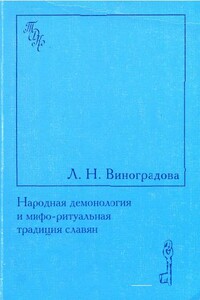
Книга посвящена «низшей» мифологии славян, т. е. народным поверьям о персонажах нечистой силы — русалках, ведьмах, домовых, о духе-любовнике и духах-прорицателях и т. п. Затрагиваются проблемы, связанные с трудностями идентификации демонологических персонажей и с разработкой методов сравнительного изучения демонологии разных славянских народов. При исследовании этого важнейшего фрагмента народной культуры главным для автора остается факт включенности мифологических персонажей во все сферы бытовой и обрядовой жизни традиционного общества.
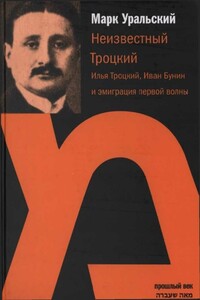
Марк Уральский — автор большого числа научно-публицистических работ и документальной прозы. Его новая книга посвящена истории жизни и литературно-общественной деятельности Ильи Марковича Троцкого (1879, Ромны — 1969, Нью-Йорк) — журналиста-«русскословца», затем эмигранта, активного деятеля ОРТ, чья личность в силу «политической неблагозвучности» фамилии долгое время оставалась в тени забвения. Между тем он является инициатором кампании за присуждение Ивану Бунину Нобелевской премии по литературе, автором многочисленных статей, представляющих сегодня ценнейшее собрание документов по истории Серебряного века и русской эмиграции «первой волны».
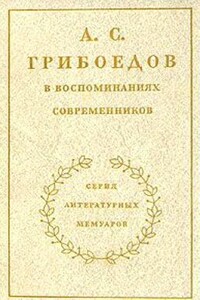
В сборник вошли наиболее значительные и достоверные воспоминания о великом русском писателе А. С. Грибоедове: С. Бегичева, П. Вяземского, А. Бестужева, В. Кюхельбекера, П. Каратыгина, рассказы друзей Грибоедова, собранные Д. Смирновым, и др.
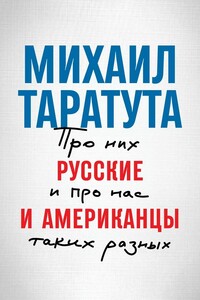
Эта книга о том, что делает нас русскими, а американцев – американцами. Чем мы отличаемся друг от друга в восприятии мира и себя? Как думаем и как реагируем на происходящее? И что сделало нас такими, какие мы есть? Известный журналист-международник Михаил Таратута провел в США 12 лет. Его программа «Америка с Михаилом Таратутой» во многом открывала нам эту страну. В книге автор показывает, как несходство исторических путей и культурных кодов русских и американцев определяет различия в быту, карьере, подходах к бизнесу и политике.
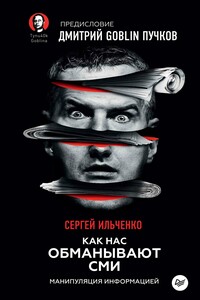
Ни для кого не секрет, что современные СМИ оказывают значительное влияние на политическую, экономическую, социальную и культурную жизнь общества. Но можем ли мы безоговорочно им доверять в эпоху постправды и фейковых новостей?Сергей Ильченко — доцент кафедры телерадиожурналистики СПбГУ, автор и ведущий многочисленных теле- и радиопрограмм — настойчиво и последовательно борется с фейковой журналистикой. Автор ярко, конкретно и подробно описывает работу российских и зарубежных СМИ, раскрывает приемы, при помощи которых нас вводят в заблуждение и навязывают «правильный» взгляд на современные события и на исторические факты.Помимо того что вы познакомитесь с основными приемами манипуляции, пропаганды и рекламы, научитесь отличать праву от вымысла, вы узнаете, как вводят в заблуждение читателей, телезрителей и даже радиослушателей.
